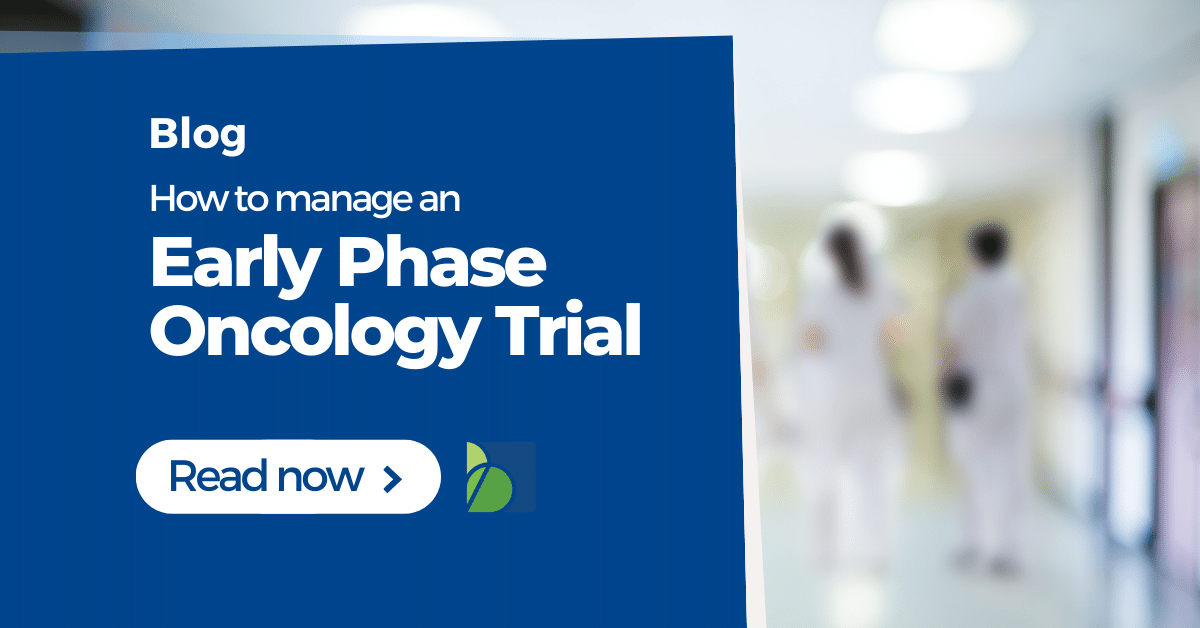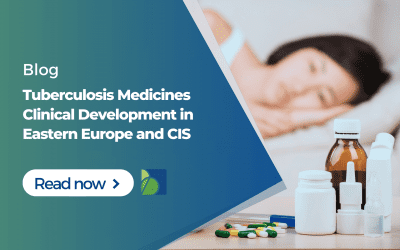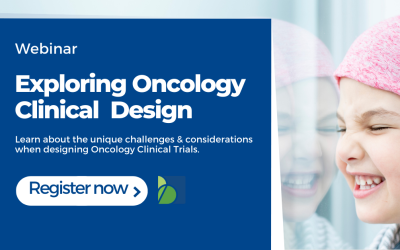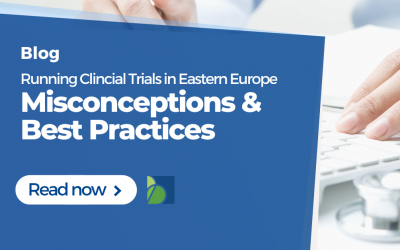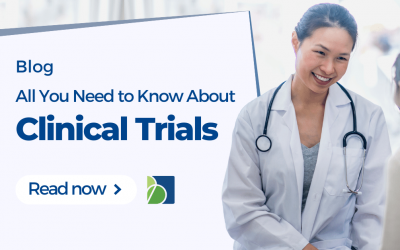Clinical development of oncology drugs has one of the lowest success rates of the development of Investigational New Drugs (INDs) for all disease categories, with less than 7% of phase I-tested oncology drugs achieving market approval. Moreover, the clinical development time for medicinal oncology products is on average 1.5 years longer than for other drugs. The development costs are also higher than average, with an estimated $ 1.8 billion USD for a successful product. For these reasons, it is crucial to have an optimal clinical development strategy, which starts with pre-clinical and Phase I studies. In this blog post, we will provide insight into how to manage an early phase oncology trial and optimize it, drawing from project management insights.
Recent Developments in Early Phase Oncology Studies
Traditionally, Phase I oncology studies aim to assess the safety and the dose range tolerability of a new medicinal product. For oncology drugs, this often involved a relatively heterogenous group of patients, usually with advanced stages of cancer due to toxicity risks. However, in the last two decades, developments in the fields of genetics, molecular biology and immune therapy have led to more targeted and personalized medicinal oncology products. The genetic and proteomic profile of a specific tumour can now be assessed, and drugs that target the specific pathological mutations can be tested or developed. This has resulted in less risk for toxicity. It also requires a more specific patient selection for early clinical tests, where not only safety and dose range are assessed but also first indications of treatment efficacy. The main outcomes of Phase I studies are the Maximum Tolerated Dose (MTD), the Optimal Biological Dose (OBD), which are determined through dose-escalation cohorts, and the recommended doses for Phase II testing, which are determined through dose-expansion cohorts.
Five-Factor Framework for Successful Clinical Development of Oncology Products
A longitudinal review by AstraZeneca of their small-molecule drug pipeline has provided a five-factor framework to optimize the selection of successful drug candidates, thereby minimizing clinical development costs and risk for failure. Let’s use this structure to answer the questions how to manage an Early Phase Oncology trial.
Right target
It is essential to have an elaborate knowledge of the disease processes and pathoetiological mechanisms that underly specific types of cancer. The drug target and the active component of the IND most likely stem from this knowledge, and it is also required to determine or develop biomarkers that indicate disease status and therapeutic effects.
Right tissue
An understanding of the pharmacokinetic (PK) and pharmacodynamic (PD) properties of the medicinal oncology product in the specific target tissue(s) is also crucial for determining its chance of success. It is important that the drug is absorbed, distributed and metabolized in the target tissue. Pre-clinical tests with specific cell cultures can help determine this, as well as provide an indication of the dose range used for Phase I studies.
Right safety
It is very important to carefully consider indications about toxicity and safety issues from pre-clinical tests with cell cultures and animal models so that early signals for potential risks in later clinical test phases can be detected. Strict indicators for safety concerns in clinical tests should be defined and adhered to, both for the safety of study participants and to prevent further development of drugs that are not safe to be used.
Right patients
You want to test the drug on patients that are most likely to benefit from it. Nowadays, this does not just mean a diagnosis with a specific type of cancer but also includes genetic and molecular biomarkers. Many state-of-the-art clinical oncology study units use biobanks, where patients can be selected based on specific biomarkers.
Right commercial potential
Ideally, an IND in the field of oncology targets a specific type of tumour for which no effective treatment is available yet (unmet medical need). If therapy is already available, the efficacy, safety profile and cost-benefit ratio of the new drug have to be superior to the current standard. To further assess the profitability of the IND, the patient population size, development costs, and pricing/reimbursement of the future product have to be estimated.
Project Management of Early Phase Oncology Studies
A project management plan often starts with clearly defined objectives, supported by scientific and strategic analyses, for instance, based on the five factors mentioned above. This can be translated into a clinical development plan for medicinal products. So let’s get to our main challenge: How to manage an Early Phase Oncology trial?
The clinical development plan describes the unmet medical needs and the advantages of the new drug over existing therapeutic options, which include financial aspects. It further contains the target product profile (TPP). The TPP should define the therapeutic endpoints and the way these are measured, as well as the safety profile of the drug. The development timeline, the costs and the projected return on investment are also included in the plan and determine the overall feasibility of the project.
Study Types and Region/Site Selection For Early Phase Oncology Studies
Depending on the objectives of the Phase I trials, several study types are possible and will influence yourt approach as how to manage an Early Phase Oncology trial. Examples are first-in-human (FIH), single ascending dose (SAD) or multiple ascending dose (MAD), PK/PD, bioequivalence, drug-drug and drug-food interaction, cardiac safety and tQTc, and ethnic bridging studies. The study type and patient population size, in turn, determine whether trials should be organized in one or multiple regions and in one or multiple study sites. You should always select sites that have experience running complex early phase oncology studies. Medical and research staff should have expertise with the relevant disease, with treating patients, and with collecting the necessary patient materials. The technological facilities to perform advanced translational procedures such as the determination of relevant biomarkers and storage of biomaterials should be present. Furthermore, expertise with regulations related to clinical research, privacy and data storage etc., is fundamental for a site to be successful. Finally, clinical oncology trial units that form a network together with other sites offer an appealing advantage for effective patient recruitment and for opportunities to expand group sizes in case clinical development reaches further phases.
Stakeholder Management and Communication Plan
A project management plan defines all the relevant stakeholders and includes a communication plan between these stakeholders. These include the sponsor or clinical research organization (CRO), the investigator(s), the clinical research associates (CRAs), the medical and research staff at the individual sites, and the ethics and cohort review committees. Protocols and standard operating procedures for communications and meetings should be in place in order to detect potential problems early and to maintain proper time management. Pre-defined targets and contingency plans can help solve problems, for instance, by expanding the number of sites in case patient recruitment is slow or below target.
Risk Management in Early Phase Oncology Trials
For complex early phase oncology studies, a number of challenges are to be expected. These challenges relate to patient recruitment/enrolment, potential side effects and time and cost management. Some examples of commonly encountered issues when learning how to manage an Early Phase Oncology trial are:
- Difficult or slow patient recruitment
- Difficulty in finding specific patient populations, for instance, with particular biomarkers or with relevant comorbidities such as hepatic or renal failure
- Occurrence of side-effects and/or high drop-out rates of patients
- Multi-drug use by patients for other problems and conditions
- Multi-study enrolment or multi-treatment use by patients
- Trouble with or slow dose selection, resulting in a long dose-escalation phase
- Trouble with adapting study protocols in case a change of study design is required
With proper project management, many of these risks can be anticipated. Procedures should be pre-defined so that action can be taken when issues arise and delays or exceeding cost projections can be prevented. To do this, it is advisable that you work with an experienced CRO. A CRO can consult about optimal and flexible study designs, can provide a network of experienced trial sites and can provide experts with relevant knowledge about the disease and technological procedures. Furthermore, a CRO can provide regulatory and organizational support for Phase I and later clinical phases of clinical development.



